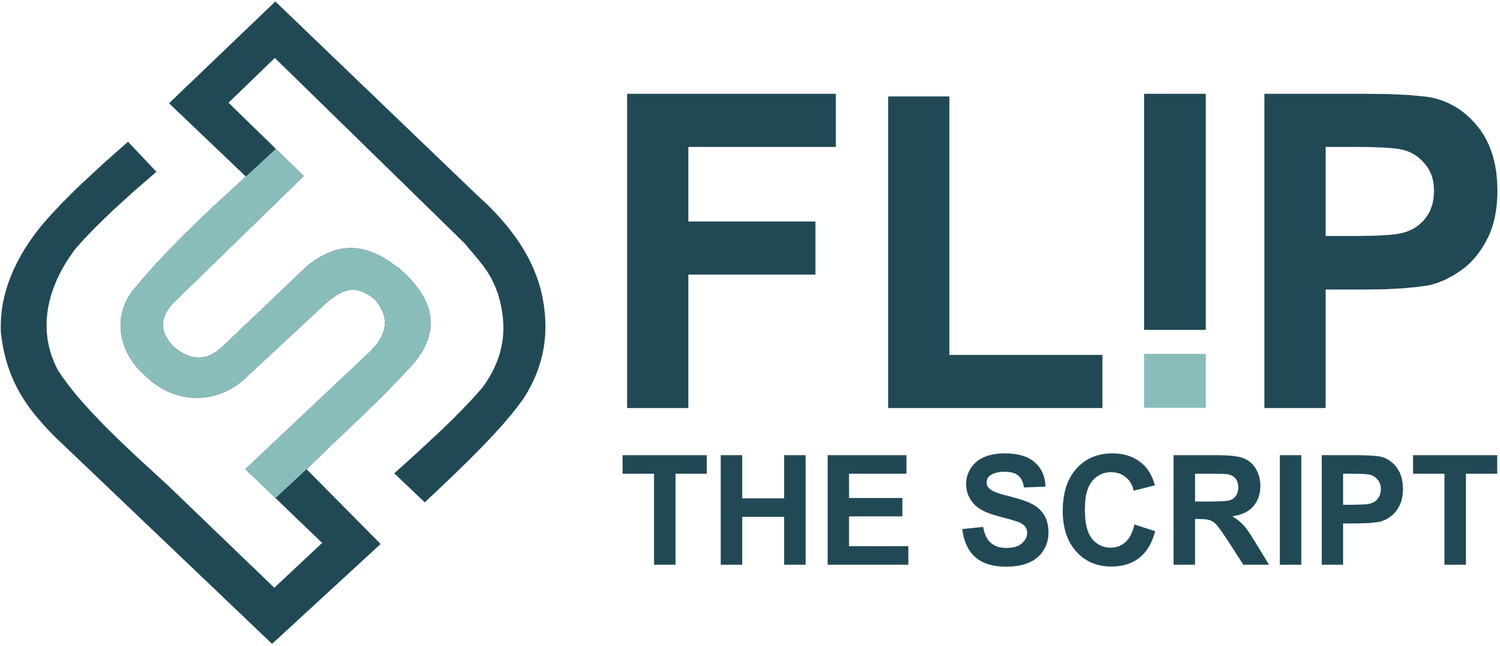Culture with No Costs
What would our cultures look like if we decided that there is no such thing as a business cost?
Language Matters
At Flip The Script, one of the things we work to stay conscious of is that language matters, and clarity around terminology is essential. We believe the way things are phrased sets the stage for how things are done. One conversation in this vein that has been rolling around in my brain recently is summed up in the question:
What if we struck the term "cost" from our business lexicon and only allowed ourselves to use the term "investment"?
It's an interesting thought that we've come to believe is not just true but crucially important to understanding our business. It's still a reasonably new lens for us, yet we're already seeing impacts stretching from how we view projects with clients to everything we do internally. And that all of this impacts our culture.
Consultants, Coaches & Contractors: Oh My
When hiring an outside partner to help with your business, many times, we assume the conversation going on is: "Okay, how much is it going to cost to fix this problem, and which kidney am I going to have to sell to afford it?" Like the Wizard of Oz reference in the header, the concept of Consultants, Coaches and Contractors fills many of us with fear as we think of the check we're going to have to cut. The danger with this cost-based mindset is that it can paint the project as a drain on the client. And in the end, neither party is happy as the outside party feels squeezed, while the client is focused on the cost and not sure what they paid for. Okay, maybe this is a worst-case scenario, but if you've ever worked either side of this exchange, you know how frustrating either can be.
So, what happens when we change the term from cost to investment? The first thing that happens is realizing you have a bit more work to do upfront. You need to determine the investment and the return. Then quantify them both in the same units (usually monetary), so you can choose the nature of the investment. Then the questions are about whether there is a positive return and if the risk is worth it.
Now first go, this can feel a bit daunting as most of us don't have a clear sense of what the opportunity or problem is worth. Don't worry, though; even some rough back-of-the-napkin calculations start to coalesce into numbers quickly. And when this is done: boom. The conversation changes. The clarity of the project improves. The feel of the engagement is more positive. The cultural impact is enhanced. Because the simple truth is:
You should never hire outside services that don't provide more value than the investment to bring them in. Framing these engagements as investments leads us to think about the return and articulate the value exchange, the "why."
Investing In Your People
Internally, one big area we've made the shift in terminology is how we talk about compensation. None of us is a cost center. We are all investments. Yet just like with clients, to make this a reality and measurable, we need to talk about the returns. In this space, those are our accountabilities (NOT our hours). This has led to each of us having a clear job description laying out our primary accountabilities, what those entail, and how much of our focus we can expect them to take. We have also started having one of our quarterly OKRs be focused on individual growth with no requirements to tie it to specific corporate initiatives because:
We are all more than the roles defined on paper and investing in the whole person will create the greatest return for them and the organization.
The positive outcomes of these shifts have been many. When we have new opportunities or unforeseen areas crop up, we have a method for determining who owns what. These clear accountabilities give us a solid foundation for building out what success looks like and how to metric it. This allows us to put less energy into anxiety, less energy into misinterpretation, and more into building awesome relationships and kickass products. It also allows us to ride the ebb and flow of our projects and energy to find the best mix of automated effort.
An unanticipated positive outcome has been the ability to clearly see where we may need support as a particular accountability grows beyond current capacity, usually before it hits a breaking point. This also gives us the ability to quantify the general investment for the exchange, thus freeing someone from tracking hours and providing clarity and consistency. The road map to incrementally build these up to potential full-time roles is also much easier to conceptualize and layout.
Conclusion
Language is important, and even slight shifts can make significant impacts. For us, the shift from "cost" to "investment" has done this for all aspects of our work and culture.
So how do you view your business, especially your people? Which term comes to mind first, and how is that impacting your mindset? One area we believe has a significant ROI is making sure your managers are equipped and confident. It's the whole reason we created our EPIC Management course. If you'd like to learn more, set up some time with us or check out one of our upcoming cohorts.

